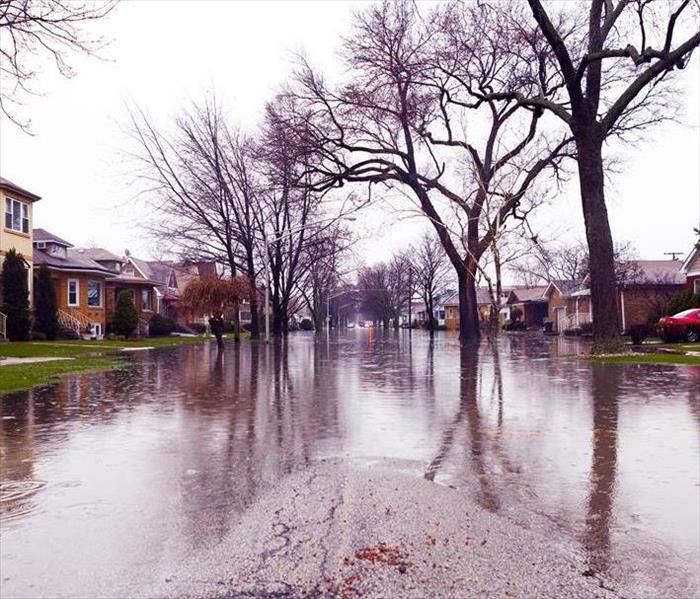How Can I Stay Safe in Floodwaters as a First Responder?
1/24/2022 (Permalink)
 Consider this Important information if you are a First Responder in Layton, UT. If any doubt arises, please contact us.
Consider this Important information if you are a First Responder in Layton, UT. If any doubt arises, please contact us.
As a first responder in Layton, UT, you are responsible for going into situations that most people try to avoid or escape. You are even saving lives at times. You may be more concerned about rendering help to the victims than considering your own safety. However, it's vital to know all of the daily risks of your job. You must understand all of the hazards each disaster situation can present and always be aware of the necessary precautions. Working in the emergency services field can be extremely rewarding. Keep in mind, though, that if you aren't healthy, you can't be at your best while trying to help others. Working a flood response can be one of the most precarious conditions in which to work.
Important information to consider if you are a First Responder
The Dangers of Floodwaters
Navigating deep waters after a major storm often presents multiple risks. There are three classes of water; each type poses progressively increased contamination levels. Black water is the most dangerous, as it is full of pollutants. The water alone sometimes isn't even the most significant threat. Always be aware of the following hazards:
1. The Various Contaminants in the Water
A flood from heavy rains can contain various types of bacteria, potentially harmful chemicals, and other contaminants that can make you sick if you contact them without the proper protection. Even if the water looks relatively clean, it can be incredibly hazardous. Therefore, it's vital to protect yourself by wearing personal protective equipment, such as that worn by storm damage restoration professionals, the entire time you're in contact with the water or anything that has touched the water. This PPE will typically include safety glasses and a respirator, along with waterproof gloves, coveralls and rubber boots. Avoid touching your face until you sanitize your hands. Also, avoid allowing open wounds to come into contact with the water.
2. The Risk of Contracting Diseases
Even if your job as a first responder doesn't require you to have certain immunizations, it's essential to keep up with vaccines. Hepatitis B and tetanus are real threats for anyone making contact with contaminated water. Ensuring that you're fully vaccinated can give you peace of mind knowing you have an added layer of protection in a hazardous environment.
3. The Strength of Floodwaters
Many people don't realize the strength of floodwaters until it's too late to avoid them. Even mere inches of water can carry away a car, so it doesn't take much to knock you off your feet. Even waters that appear to be still can have an undertow that can sweep you away. Always be extremely cautious before you approach standing water, whether on foot or in a vehicle.
You have an incredible amount of responsibility and stress when working as a first responder. It's easy to get caught up with helping victims during emergencies such as floods. People depend on you at their most vulnerable times. Nevertheless, you must always be cautious concerning your own safety so you can continue to perform at your best. Continually stay mindful of ways to keep yourself as safe as possible while you're on the job.






 24/7 Emergency Service
24/7 Emergency Service